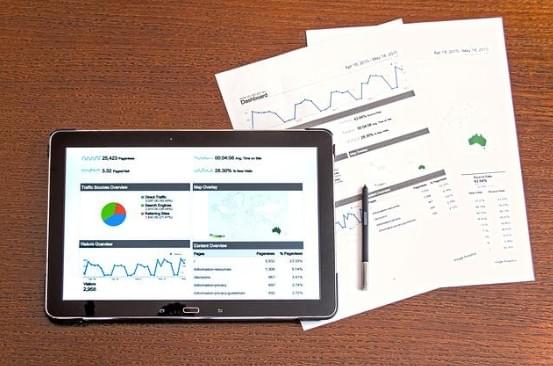In today’s data-driven world, it’s hard to imagine a business that does not use data in some form or the other. However, the rising need to collect data also calls for the need to protect it. This is where data minimization comes in, as it helps organizations reduce the amount of data they collect and store while simultaneously ensuring data privacy and security. If you’re looking for a comprehensive guide on data minimization, look no further. This article will define data minimization and share its importance. It will also discuss the principles that guide it and a few implementation techniques.

The Importance of Data Minimization
The primary reason why data minimization is essential is that it plays a significant role in protecting user privacy. With companies collecting vast amounts of data about their customers, there’s always a possibility of data breaches, which can severely impact an organization’s reputation. By minimizing the amount of data they collect, companies can reduce the risk of data breaches and associated costs.
However, data minimization is not just about reducing the risk of data breaches. It also has other benefits to help organizations save money and enhance their operations. For instance, companies can reduce their data storage costs by minimizing the amount of data they collect. This is because storing large amounts of data can be expensive, especially if the data is stored on-premises. By reducing the amount of data they store, companies can save money on storage solutions and invest in other areas of their business.
In addition to reducing storage costs, data minimization can also help to enhance data security. This is because there is a lesser amount of data to secure, making it easier for organizations to implement robust security measures. By minimizing data collection, companies can also ensure regulatory compliance with data protection and privacy regulations such as the GDPR and CCPA. This is because these regulations require organizations to only collect and process data that is necessary for their operations.
Moreover, data minimization can also help organizations to improve their customer relationships. This is because customers are more likely to trust companies that collect only the necessary data. By minimizing data collection, companies can demonstrate their commitment to protecting customer privacy, which can help to build trust and improve customer loyalty.
In conclusion, data minimization is essential for organizations that want to protect user privacy, reduce storage costs, enhance data security, ensure regulatory compliance, and improve customer relationships. By minimizing the amount of data they collect, companies can reap these benefits and invest in other areas of their business.
Key Principles of Data Minimization
Data minimization is a fundamental principle of data protection that emphasizes collecting and processing only the data that is necessary for a specific purpose. In this way, companies can reduce the risks associated with data breaches and protect the privacy of individuals. There are several key principles of data minimization that companies should follow:

Collection Limitation
Collection limitation means collecting only the amount of data that is essential and necessary for a specific purpose. Companies must adopt a “need to know” approach when collecting data, where only the relevant data is collected and nothing more. For example, if a company is collecting data for marketing purposes, they should only collect data that is relevant to their marketing efforts. This may include demographic information, such as age, gender, and location, but not sensitive data, such as medical history or financial information.
Moreover, companies should ensure that they obtain the consent of individuals before collecting their data. This means that individuals should be informed about the purpose for which their data is being collected and how it will be used. Companies should also allow individuals to opt out of data collection if they do not wish to participate.
Data Retention
Data retention refers to the length of time that data is kept. Companies should keep data for as long as necessary and have a clear policy for when data should be deleted or disposed of. This is particularly important for personal data, as it can become outdated or irrelevant over time. Companies should also consider the potential risks associated with keeping data for too long, such as the risk of a data breach or unauthorized access.
Furthermore, companies should ensure that they dispose of data securely and responsibly. This may involve shredding paper documents or securely deleting electronic files. Companies should also ensure that they comply with any legal or regulatory requirements for data retention and disposal.
Data Accuracy
Data accuracy is crucial for decision-making. Companies should ensure that the data they collect is accurate and up-to-date. They should also put measures in place to correct any inaccuracies quickly. For example, if a company collects data about a customer’s address and the address is incorrect, they should try to correct the error as soon as possible.
Moreover, companies should ensure that they have processes in place to maintain data accuracy over time. This may involve regularly reviewing and updating data and verifying the accuracy of data with the individual concerned.
Purpose Specification
Purpose specification refers to clearly specifying the purpose for which data is being collected. Companies should always inform individuals about the purpose for which their data is being collected and ensure that it is collected for that purpose only. This means that companies should not collect data for one purpose and then use it for another purpose without obtaining the individual’s consent.
Furthermore, companies should ensure that they do not collect more data than is necessary for the specified purpose. For example, if a company collects data for a specific marketing campaign, it should not collect additional data irrelevant to that campaign.
By following these key principles of data minimization, companies can protect the privacy of individuals and reduce the risks associated with data breaches. Moreover, they can build customer trust by demonstrating their commitment to responsible data handling.
Implementing Data Minimization Techniques
Anonymization and Pseudonymization
Anonymization involves removing any identifiable information from the data, making it impossible to link the data to any individual. This technique is useful when the data is being used for research or statistical analysis, as it protects the privacy of individuals while still allowing for valuable insights to be gained from the data.
Pseudonymization, on the other hand, involves replacing identifiable information with a pseudonym, allowing the data to be linked to an individual, but not directly. This technique is useful when the data needs to be linked to a specific individual for operational purposes, such as medical records, but still needs to be protected from unauthorized access.
Data Aggregation
Data aggregation involves combining data from multiple sources, protecting the privacy of individual data points while still allowing for data analysis at a higher level. This technique is useful when the data needs to be analyzed to gain insights, but individual data points must be protected to maintain privacy. For example, combining data from multiple hospitals to analyze the effectiveness of a particular treatment without revealing individual patient data.
Data Masking
Data masking involves changing/hiding specific pieces of data to protect sensitive information. For instance, masking a social security number by only showing the last four digits to protect individuals’ identities. This technique is useful when the data needs to be shared with third parties but sensitive information needs to be protected. For example, masking credit card numbers before sharing data with a marketing firm for analysis.
Tokenization
Tokenization is a technique that involves replacing sensitive information with a unique token, which references the original data stored securely in another location. This technique is useful when handling sensitive data such as credit card numbers, during online transactions, as it allows companies to store data in a secure way without risking a data breach. Tokenization is also useful when the data must be shared with third parties, as the token can reference the original data without revealing sensitive information.
Implementing data minimization techniques is crucial in today’s data-driven world to protect the privacy of individuals and prevent data breaches. By using techniques such as anonymization, pseudonymization, data aggregation, data masking, and tokenization, organizations can ensure that sensitive data is protected while still allowing for valuable insights to be gained from the data.
Conclusion
Data minimization is a crucial data protection technique that helps companies protect user privacy, reduce data storage costs, enhance data security, and ensure regulatory compliance. Companies must adopt the key data minimization principles, such as collection limitation, data retention, data accuracy, and purpose specification when collecting and storing data. Additionally, companies can use various techniques such as anonymization and pseudonymization, data aggregation, data masking, and tokenization to implement data minimization effectively. Our team at PPGS ™ can conduct an objective assessment of your policy and practices to help you determine whether you are collecting and retaining only pertinent information. Contact us today to learn more.
